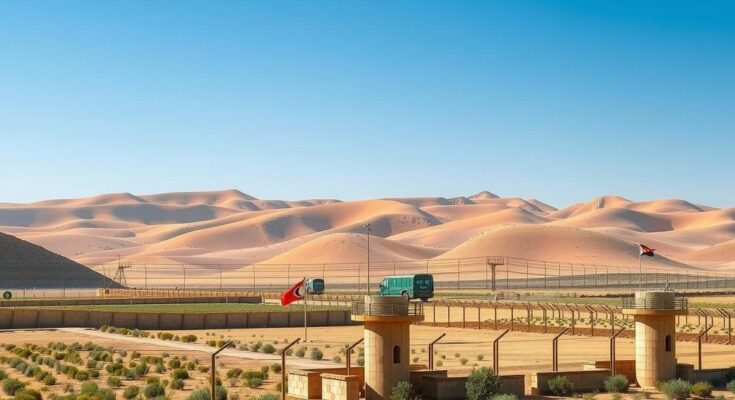Algeria faces significant challenges with Tunisia regarding irregular immigration, with recent restrictions leading to a border crisis. Diplomatic discussions have been initiated, highlighting the need for cooperation. However, accusations of inadequate action by Algeria persist amid rising crime rates in border regions. Additionally, pressure from Europe complicates the situation as Tunisia struggles to manage the growing migrant population.
Algeria is currently facing significant challenges with neighboring Tunisia concerning the increasing flow of irregular immigrants. For an extended period, numerous Algerian and African migrants have traversed the Algeria-Tunisia border. However, recent restrictions imposed by Algeria to manage this influx have culminated in a border crisis, prompting diplomatic discussions between the two nations.
Despite some coordination in migration and security efforts, Tunisia has accused Algeria of inadequate action to curb the flow of migrants. The Tunisian President, Kais Saied, dispatched Interior Minister Khaled Nouri to meet with his Algerian counterpart, Ibrahim Mourad. The agenda of this meeting included vital topics such as smuggling, border security, and the economic impacts of this migrant influx.
Post-discussion, both diplomatic teams underscored the necessity of cooperation in addressing the irregular migration issue. Nouri subsequently met with Algerian President Abdelmadjid Tebboune. Political analyst Nabil Rahbi highlighted that Algeria must enhance its cooperation to mitigate the migrant exodus toward Tunisia, although he noted Algeria’s perceived reluctance to assume full responsibility.
The region of Sfax has become particularly problematic, with local residents reporting an alarming rise in crime, including assaults. Tunisian parliamentarians such as Tariq Al-Mahdi have advocated for military intervention in response to these security concerns. Conversely, several human rights organizations have criticized such military suggestions while emphasizing the inadequate protection of vulnerable individuals in light of governmental migration policies.
Hossam Eddine Jebabli, a spokesperson for the Tunisian National Guard, reported that over 19,000 illegal immigrants were recorded in the first four months of 2024 alone, with a remarkable 70% entering from Algeria. Additionally, Europe has increased pressure on Tunisia to prevent migrant flows towards its shores, albeit without providing financial assistance. This situation has placed Tunisia in a challenging position as it manages this developing migration crisis.
In summary, Algeria and Tunisia are grappling with a significant border crisis stemming from the rise in irregular immigration. Diplomatic initiatives underscore the need for greater cooperation; however, accusations of negligence persist. Local communities are increasingly affected by rising crime rates linked to this issue, and the debate between bolstering border security versus protecting human rights continues. With ongoing pressures from Europe and alarming statistics on migrant entries, the situation remains critical and multifaceted.
Original Source: www.atalayar.com




